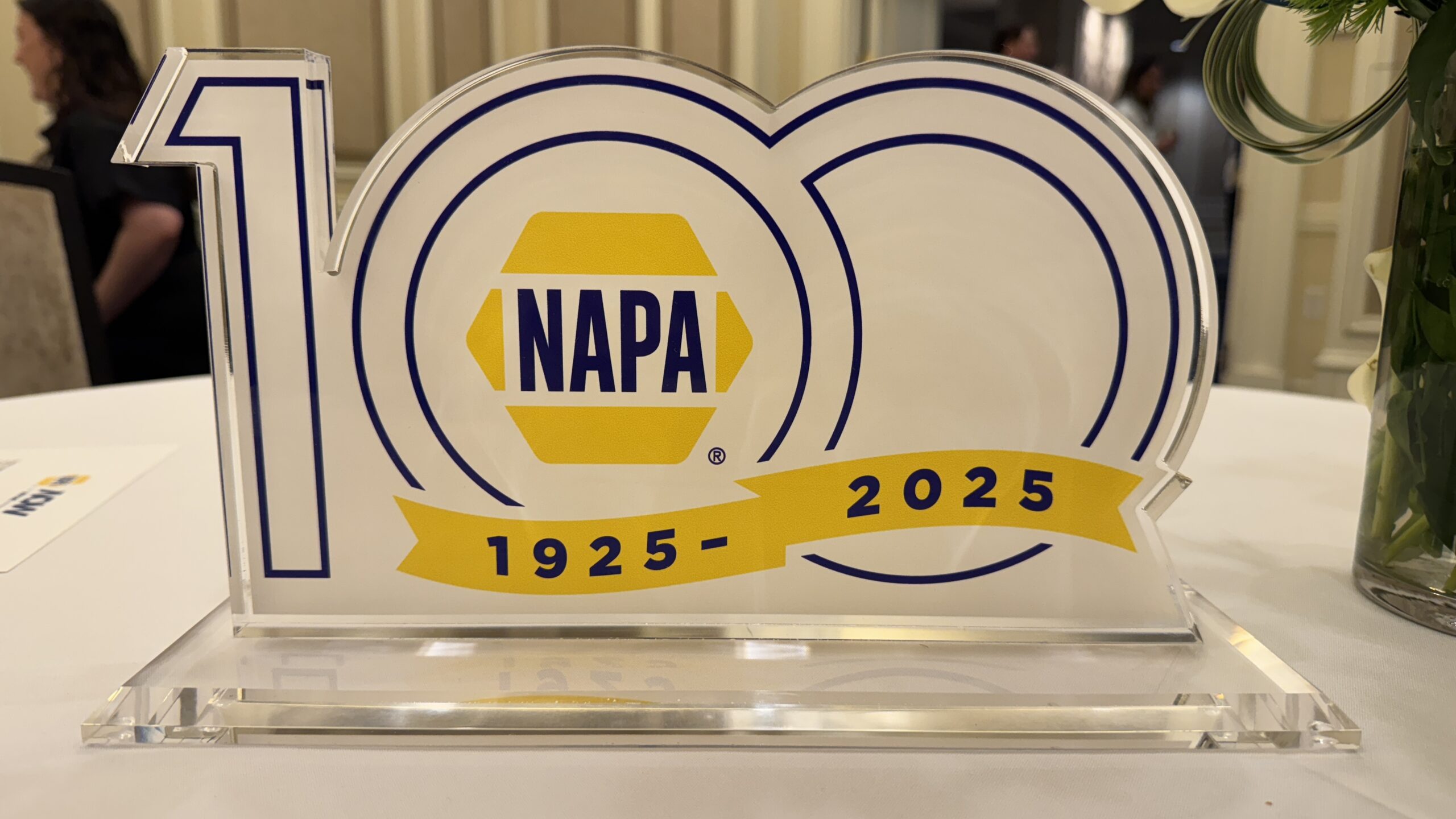
U.S. Vice President Mike Pence says passing the new MCUSA North American trade deal takes precedence over removing tariffs.
Pence was invited to address senior automotive executives on April 24, prior to a panel discussion organized by OE Supplier Association, a division of the Motor & Equipment Manufacturers Association (MEMA).
The automotive supplier industry has been unified in its argument that a strong North American trade deal and a stable supply chain are essential to allow U.S. businesses to remain competitive in a global marketplace.
Pence said he is pushing the U.S. Congress to act quickly to approve of the proposed United States-Mexico-Canada Agreement.
“When the American automotive industry prospers, America prospers,” Pence said during a speech at Motor City Solutions in Taylor. The vice president asked Michigan and the automotive industry to take the lead in pressuring its elected representatives to pass the USMCA “this year.”
Ahead of Pence’s remarks, auto industry leaders spoke in support of the trade agreement designed to replace the North American Free Trade Agreement. But the automakers and suppliers are still feeling the pinch of costs related to steel and aluminum tariffs, with Fiat Chrysler Automobiles’ head of NAFTA purchasing and supply chain calling for a path to remove tariffs as part of the push to approve the new trade deal.
“Our priority now is to have Congress approve the USMCA,” Pence told reporters following his speech. “Once we address the inequalities that existed under NAFTA… we’ll give due consideration to other tariffs that have been imposed. But the priority right now is to get USMCA approved by Congress and have Canada and Mexico approve it.”
The proposed trade pact has garnered criticism from UAW leaders.
“As it stands now, the New NAFTA falls short,” UAW President Gary Jones said in a statement. “We need a strong, enforceable and impactful agreement that saves and creates good paying jobs right here at home. We urge the Administration to get back to the negotiating table with Canada and Mexico.”
Ahead of the vice president’s remarks in Taylor, auto industry leaders gathered to discuss the merits of the USMCA.
Executives from Ford, Fiat Chrysler and General Motors Co. expressed support for the USMCA, pointing to examples of U.S. manufacturing investments they say are in response to new requirements in the proposed trade agreement.
Most notably, Fiat Chrysler’s plan to invest $4.5 billion in five Michigan plants – which includes reviving an idled engine plant in Detroit as a Jeep assembly plant – hinges on passage of USMCA, said Scott Thiele, head of NAFTA purchasing and supply chain for the automaker.
A study from the U.S. International Trade Commission found recently that U.S. automakers would sell 140,000 fewer vehicles per year under the USMCA. That finding contradicts White House statements that a new trade deal would be a boon for automakers.
Ford, GM and Fiat Chrysler officials have said multiple times over the last few years that NAFTA needs to be modernized, updated or improved. At the same time, automakers are reckoning with high costs related to President Donald Trump’s tariffs on steel and aluminum, and a proposal to slap tariffs on imported vehicles and car parts.
Both Ford and GM say rising commodity costs in 2018 cost them around $1 billion. The unexpected hit spurred full-year earnings forecast adjustments from all three Detroit automakers. But Larry Kudlow, Trump’s assistant for economic policy and director of the National Economic Council, told The Detroit News in October that the automakers are “making money” despite hits from the tariffs.













Leave a Reply